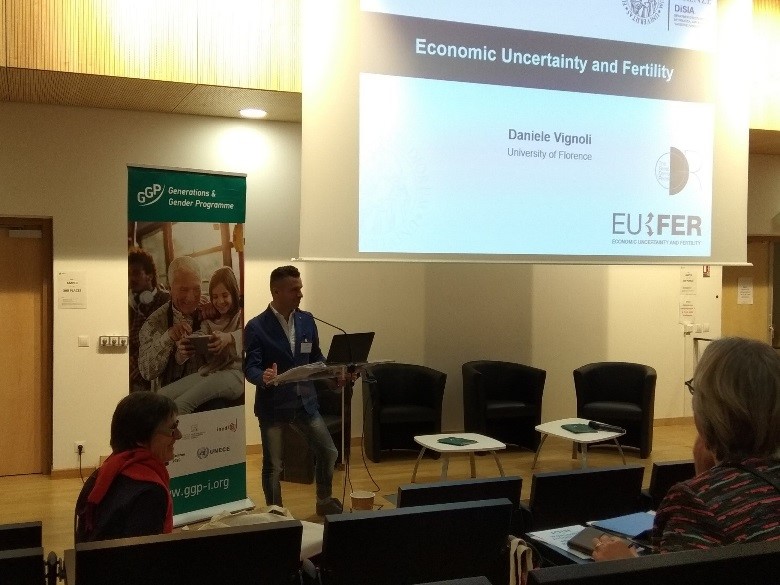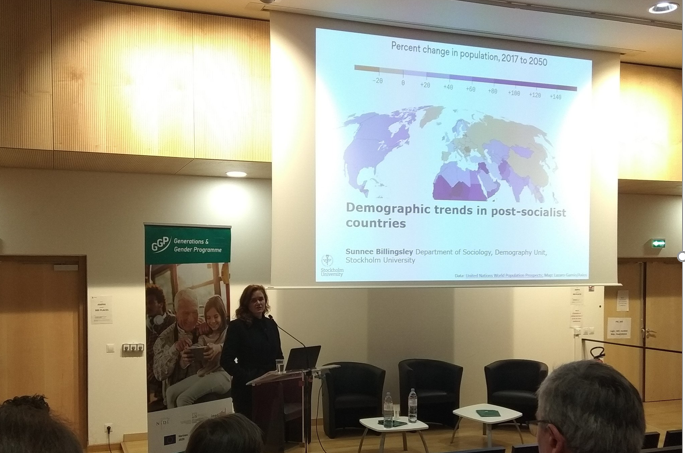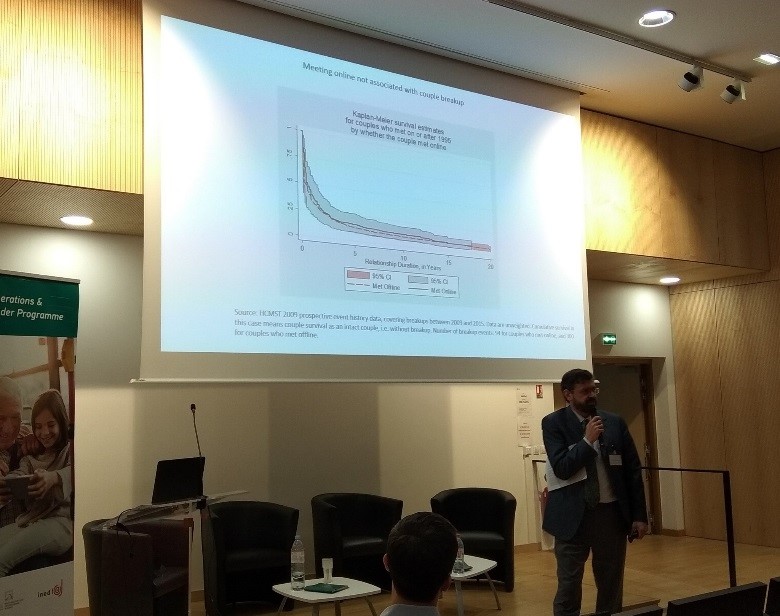5th Generations and Gender Programme User ConferenceParis, France, 24-25 October 2019
Organizing committee: Arianna Caporali (Institut National d’Études Démographiques), Luisa Fadel (Netherlands Interdisciplinary Demographic Institute), Silvia Huix (Institut National d’Études Démographiques), Sorya Le Forestier (Institut National d’Études Démographiques), Ariane Pailhé (Institut National d’Études Démographiques), Arnaud Regnier-Loilier (Institut National d’Études Démographiques), Laurent Toulemon (Institut National d’Études Démographiques). The Generations and Gender Programme (GGP), in collaboration with the French Institute for Demographic Studies (INED) and the IUSSP, held the 5th GGP User Conference at the Paris School of Economics on 24-25 October 2019. The GGP User Conference is an international bi-annual conference which brings together researchers working with data from the Generations and Gender Survey (GGS). The GGP provides both individual-level survey data and contextual aggregate indicators on topics such as partnership formation and dissolution, fertility and intergenerational exchanges.
During the two days, three keynote sessions – by Daniele Vignoli (University of Florence), Sunnee Billingsley (Stockholm University), and Michael Rosenfeld (Stanford University) – and 23 papers were presented. 109 participants from 20 countries attended the conference. The presentations and discussion focused on how people form relationships (and dissolve them), how they support each other, how they combine work and family, and their fertility intentions and realization. It became clear also that scholarship in these fields have expanded considerably to cover a larger set of countries.

During the first day, Daniele Vignoli gave a talk on his research on the relationship between economic uncertainty and fertility in Europe. Growing economic uncertainty is now an intrinsic characteristic across many families’ lives. The talk highlighted the importance of looking at the multiple influence paths by which economic uncertainty can influence fertility intentions.
At the end of the first day, Sunnee Billingsley discussed the demographic trends in Post-Socialist countries, evaluating the effects of social policies and social change in demographic patterns after the fall of the Soviet Union.

In addition, in the two poster sessions, 14 posters were exhibited and the authors had the opportunity to summarize their findings in two-minutes pitches. The Conference participants had the opportunity to vote online and choose the best poster exhibited. The best poster award went to Ivan Čipin, Petra Međimurec, and Mario Brnić, with the poster entitled “To leave or not to leave Croatia: the correlates of intentions to move abroad”. 
On the second day of the conference, Michael Rosenfeld presented some of the findings of his study ‘How Couples Meet and Stay Together’, analysing the rise of the internet as a social intermediary in finding romantic partners in the United States. The closing remarks by the GGP Director, Prof. Anne Gauthier, highlighted the fact that the GGP has been at the forefront of demographic research by collecting detailed data on fertility and partnership histories including cohabitation since its beginning. The contributions and discussion during the conference made it clear that there is a vast amount of work to be done to scientifically understand the diversity behind the changes in family dynamics as well as their consequences on other domains of life being health, well-being or employment. The next GGP User Conference will be held in 2021. See also:
The 5th GGP User Conference was partly funded by the IUSSP and by the Horizon 2020 Research and Innovation Programme under grant agreement no. 739511 for the project Generations and Gender Programme: Evaluate, Plan, Initiate. Credits: all photos by Luisa Fadel. |
